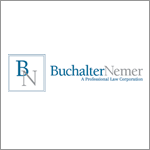Beginning associates at Mitchell Silberberg are assigned to a specific department, although associates occasionally work in two departments or on cases that cross department lines (such as litigation and IP). Most cases are staffed very leanly- one partner, one associate. This lean staffing translates into relatively junior associates getting major "responsibility for (and exposure to) a lot of significant aspects of a matter," we were told for instance, as a first-year, I was brainstorming case strategies and developing a discovery plan for certain matters. This is much more rewarding than being the 8th cog in an insignificant wheel which is part of a massive litigation machine that you don't even know the big picture of. Of course, there are times when a little less responsibility would be nice- if three of your cases are on fire at the same time, your workload can easily get crazy," one insider informed us. Most associates have client contact soon after entering the firm. Such contact depends on the client and the matter, of course, but "often a junior associate will be the person keeping the client informed and answering questions about status, progress, legal and factual issues, etc. This is especially true when the client is either relatively unsophisticated or especially interested in being kept 'in the know' during each step," observed one insider, who added that "it's a wonderful opportunity to get a sense of exactly how your services can be shaped to serve the client's needs/desires." Training at Mitchell Silberberg is mosdy on-the-job, but first-year associates in litigation and labor go through a formal training program with lectures and some practicals, "ranging from fact investigation all the way through oral argument." The firm will reimburse associates for continuing legal education credits and, on occasion, it puts on seminars, but "not very often. These are of the one-hour-lunch variety and are not very well-organized," we were told. Although formal evaluations at Mitchell Silberberg are somewhat irregular and perfunctory, the informal feedback provided associates drew largely positive responses from our contacts. One insider reported that "informal critique is the norm; I almost always get good feedback on my written work from the partner I'm working with," while a second contact noted that "my work is regularly critiqued and I have discussions with the partner and senior associate in my department often, as the need arises." One person advanced a partial dissent on this matter, informing us that "I'd like more structured feedback, on a more regular schedule. Once a junior associate has worked with a partner a few times, the partner can tend to 'forget' to give feedback and advice. It forces an interested associate to walk a fine line- one doesn't want to harass a partner, and one doesn't want to seem as though one is fishing for compliments, but at the same time, it's important to know what areas are solid and what could use improvement." Attorney attire at Mitchell Silberberg is rather informal. Fridays are officially casual dress days, and "a lot of people dress down almost every day," we were told. "The firm seems to care less about how we dress than about how we work, and that's the way it should be," noted one insider; "everyone should be comfortable so as to optimize productivity and morale." The management of Mitchell Silberberg is "rather loose, so much so that it often appears that the left hand doesn't know what the right hand is doing," reported one insider, who further observed that "you have to learn, by trial and error, whom to talk to about specific issues; no one tells you these things. Often we hear of developments through the grapevine, or occasionally through e-mails and voicemails." A second contact remarked that "there are times when Mitchell's informality can be annoying. It often seems that there are no real written policies here- everything is handled on a case-by-case basis. While, for the most part, that's a good thing, there are times when an associate just wants to know exactly where he or she stands. For example: Paternity: is it there? How much? Part-time: can we do it? What hours will be required? For what pay? Bonus (which is based on whether you reach the 1900 billable hours required): what kind of 'nonbillable' weak-committees, pro bono, speeches and papers, etc.- counts toward the total? What doesn't?" Salaries at Mitchell Silberberg tend to be a "little lower" than at comparable LA firms. One insider noted, however, that "we don't work as many hours as other comparable firms. Some firms have 1950 or 2000 billable hour requirements and another couple hundred 'soft* billable hours, like recruiting and on-the-job training. We have an 1900 billable hour requirement, which includes these activities." Fringe benefits at the firm include a 401(k) plan, catered lunches, and free parking. Extra-firm socializing at Mitchell Silberberg is on the sparse side. People have "their own lives outside of the office. We do not need the firm to define who we are," noted one contact. Most associates at the firm "say goodbye" to their co-workers at day's end and on the weekends. There are, however, some young associates who "hang out" together ("the labor department associates are particularly close, socially," we were told), and a fair share of attorneys play on the firm's "very good" Softball and basketball teams. But, for the most part, "work is work, and social life is social life," observed one insider, who added that "of course, all that changes in the wee hours--once the pizza delivery and beer arrives, everybody's personal business is open to discussion." Mitchell Silberberg sponsors a monthly "themed" catered party for all staff and a weekly cocktail party on Thursday nights for attorneys only. In general, however, "the firm doesn't seem to take an active approach in promoting social activities, consistent with its live-and-let-live approach."








